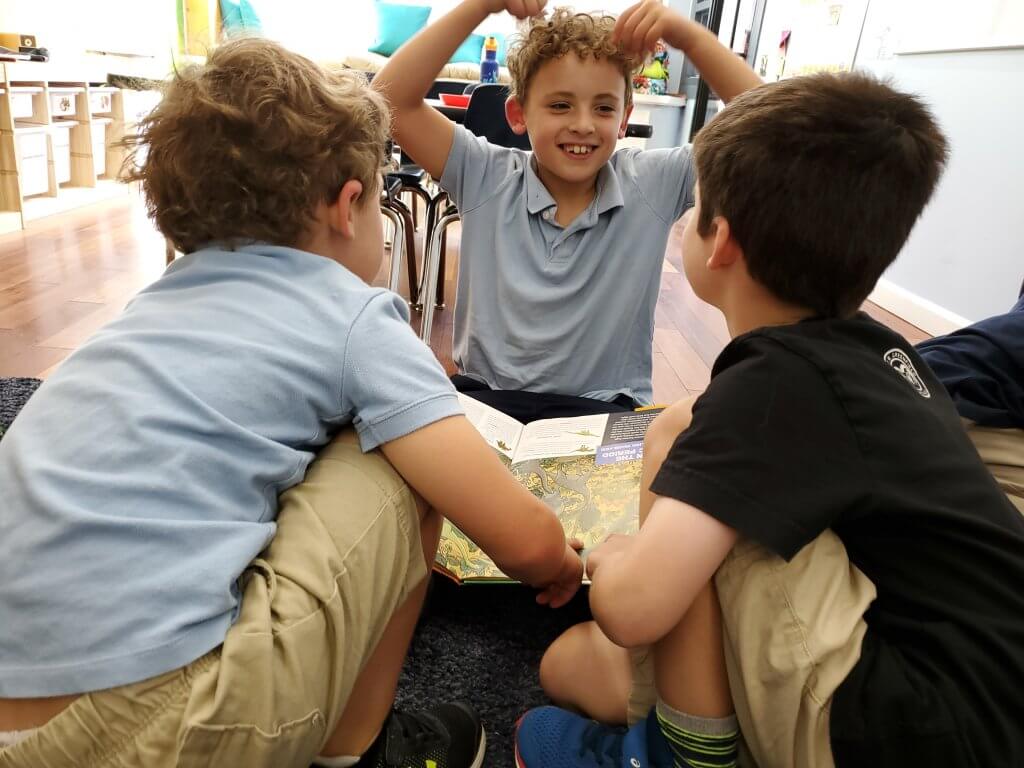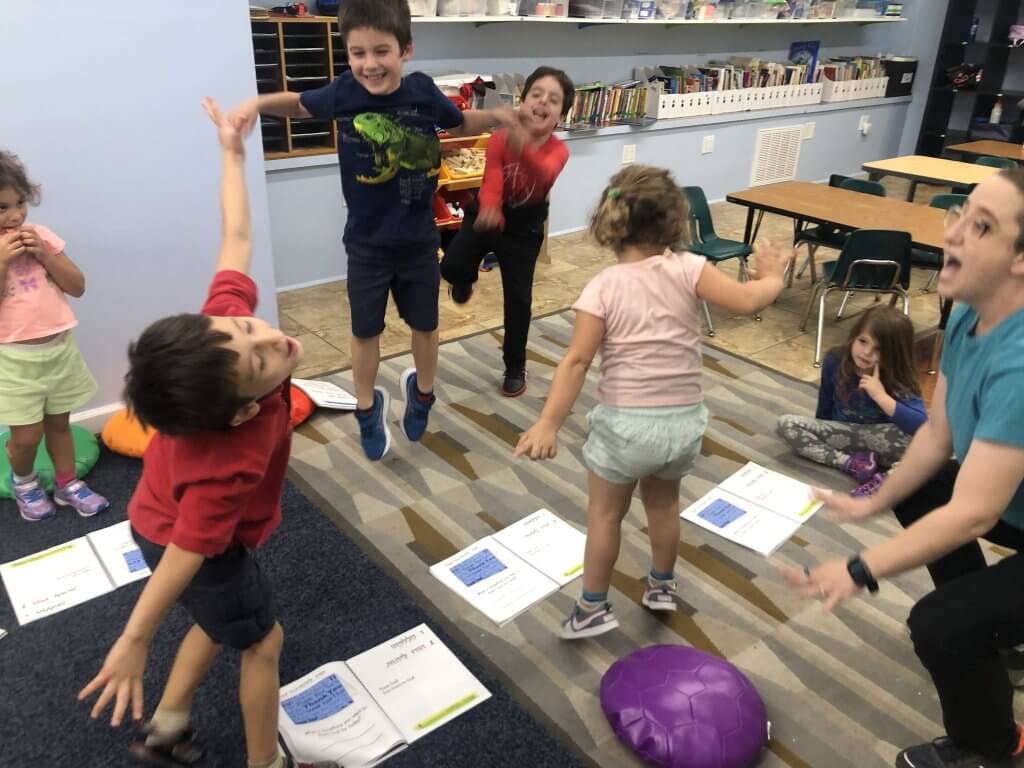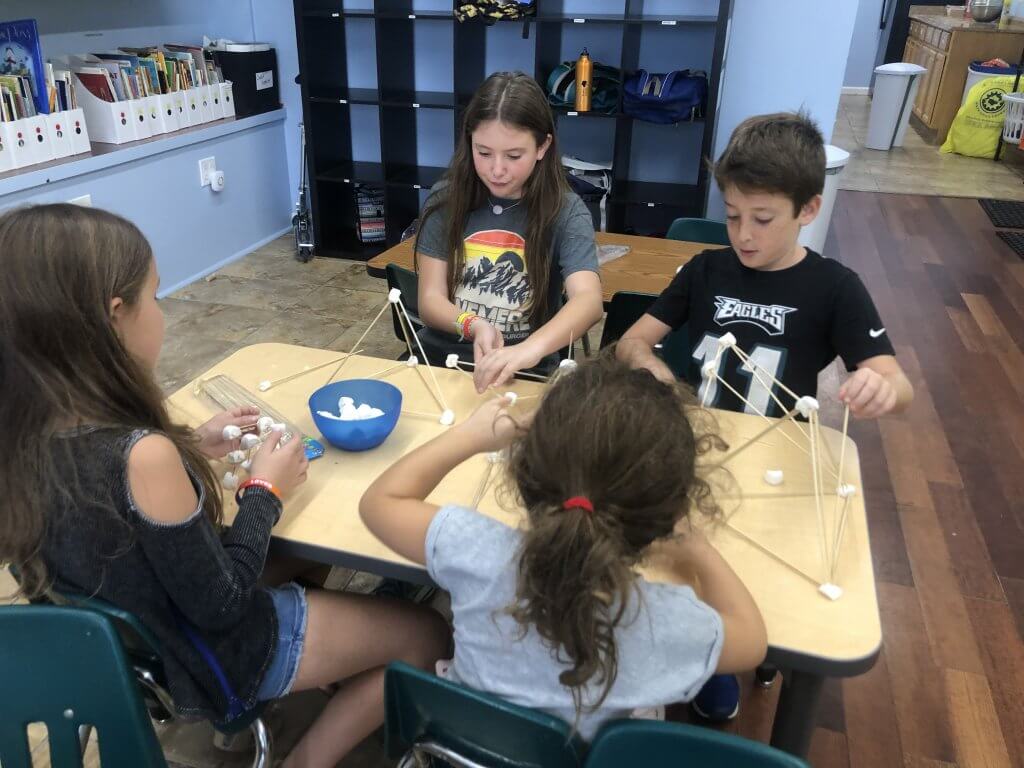
What do we know about God? How does the description of God in the story of Migdal Bavel (the Tower of Babel) add to or challenge our pre-existing understanding? Why does God make people unable to understand each other in this story? How did they respond to their misunderstandings? How do we respond to ours? Read on to find out what your creative and thoughtful kiddos had to say.

According to the story, God comes down to look at the tower and the city that the people are building. Then God confers with someone else, deciding to go down and mix up the people’s languages (Genesis 11:7). What does that tell us about God? How does this information combine with what we already think we know about God?
Here are some ideas from our learners:
- God can hear from 10 million miles in the air.
- God is too far away to hear me.
- I think God is a person but invisible.
- Even God doesn’t know everything.
- God is everywhere all the time and can always hear what’s in my heart.
- God is like us–good at some things and needing help with others–because God is inside all of us.
- God is everywhere in the universe.

God says, “Let’s go down and mix up their speech so they don’t understand each other” (Genesis 11:7). Who is God talking to? Rashi suggests that God is looking for input from the angels in God’s court.
Here are some questions and ideas our learners have about God and angels:
- Are the angels God’s sons?
- Angels are people who died.
- Do we become angels when we die?
- Are the angels smarter than God?
- What happens to people when they die? Do they become God’s servants?
- God is in the sky because God is with the angels.

Rashi notices that God makes it so people can no longer understand each other and wonders what that might look like. He gives an example of a possible misunderstanding: one builder asking for a brick and another builder bringing instead a limestone. What might happen next as a result of that misunderstanding?
- The first person says, “No! You gave me the wrong thing.”
- The person would just go get the brick herself.
- They would cry about not getting the right thing. And then the other person would be confused and surprised because they thought they brought the right thing. Eventually that person would just walk away.

What do you do to get people to understand you?
- Use different words – not big ones like “catastrophe”.
- Give more information.
How do you check if someone else understood you?
- If they find the right thing that I asked for.
- If they do the right thing that I said.
How do you check if you understood someone else?
- Check your brain dictionary.
- Sometimes I can’t hear the directions and think I’m supposed to be doing something else.
As we enter into this season of Rosh Hashanah and Yom Kippur, consider how you manage misunderstandings. What does it look like to approach them with compassion for yourself and the other person? How can we be forgiving of both our mistakes and others? Stay tuned for more on forgiveness, compassion, and being the best versions of ourselves in the coming weeks.
